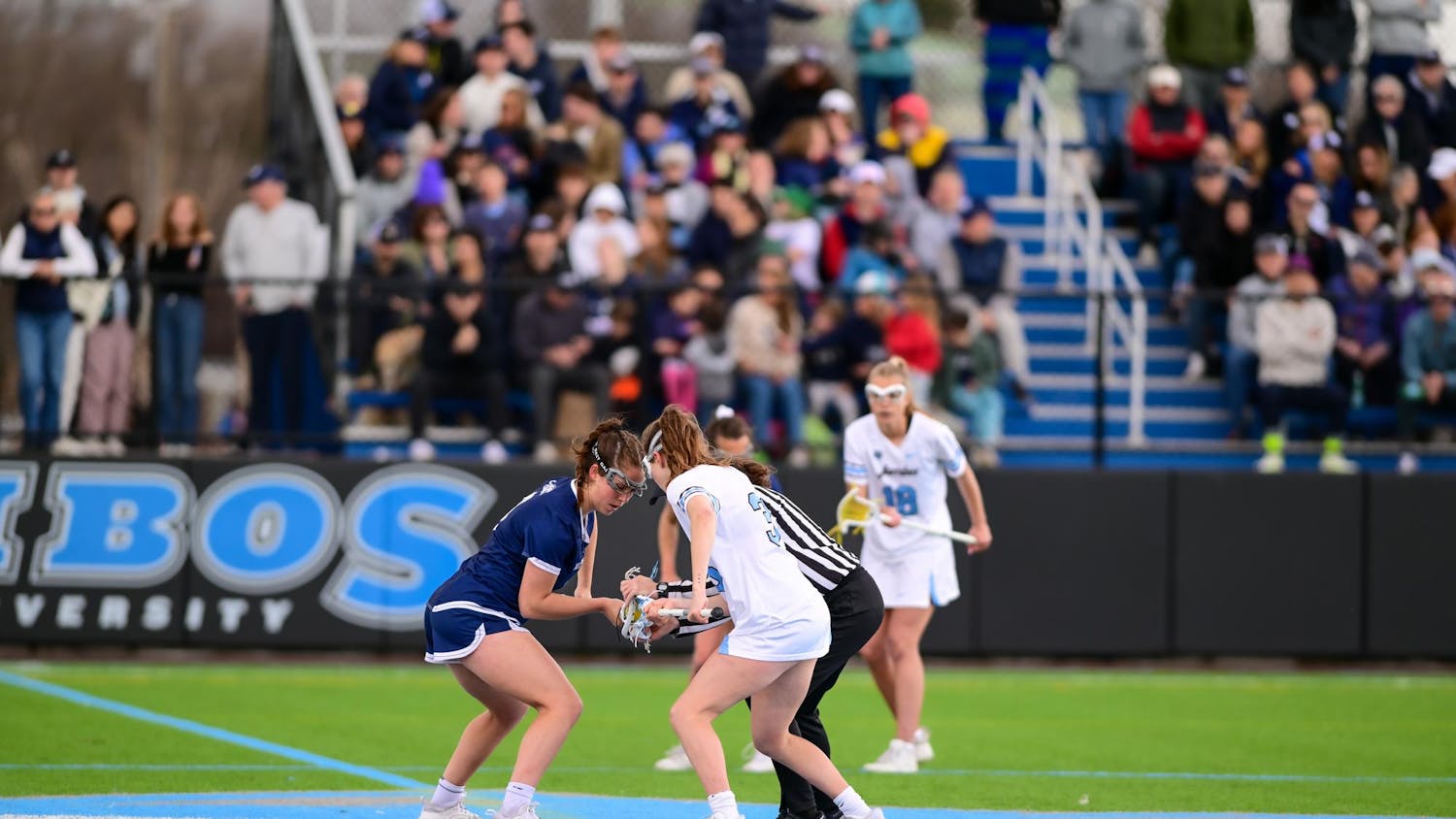Womens crew kicked off its fall season at the Green Mountain Head Regatta in Vermont on Sunday, and fielded a total of 15 boats. Like most fall races, the Green Mountain Head was a head race, with boats going off at five-second intervals and the rowers racing against the clock.
The regatta featured both mens and womens events in a range of age groups from under-19 to over-75. Tufts was represented in the under-19 womens singles by freshman Nika Wakulich, who placed second, and fielded six singles and nine doubles in the 19-34 age group. There was no team competition in the regatta, so every Tufts boat technically rowed as an individual team.
In the fall, the team focuses on sculling, which is different from sweep rowing used in the spring in that every rower has two oars. Many women on the team began sculling at the start of the fall season three weeks ago and did well given their limited experience.
For many of the sophomores and freshmen, this was their first sculling race ever, most of them learning to scull in the past three weeks, head coach Brian Dawe told the Daily in an email.
Tufts faced a range of competition, from high school athletes just getting their feet wet in the rowing world to seasoned athletes such as Olympian Gevvie Stone.
The day was beautiful and calm, the river was barely flowing and the team reacted very well in this environment, Dawe said. Its always a charge to find yourself on the water and in the same event as Olympians and World Champion scullers.
The team performed well given the competition. The 19-34 singles category featured Stone and other elite athletes, most of whom were in their mid-to-late 20s. Senior tri-captain Caroline Ricard had the best performance for Tufts in the division with a time of 23:31.4. She finished 19th out of 31 rowers with a finishing time three minutes off of first place, which Stone took handily. Sophomore Emma Wells finished second for Tufts, about a minute behind Ricard and 24th overall.
In the doubles, the Jumbos also faced elite competition, although not at the same level as the single races. The top rowers, who finished the course in close to 20 minutes, occupied the first three places. Pressing in on the elite boats, however, was the sophomore tandem of Katie Grosch and Rachel Siegler, both of whom competed in their first sculling race Sunday. They finished in 22:40.1, fourth overall, with a second sophomore double of Claire Sleigh, who is also a sports editor at the Daily, and Grace Reilly eight seconds behind.
I think that our team performed very well at the regatta this past weekend, Siegler said. It was our first one of the season, and for many of us our first time racing in sculling boats, so we were all very excited to race. Overall, it was a great first race, and a great effort by the whole team.
The three-mile course was upstream for the first 1.5 miles with a complete turn around two buoys to come back downstream for the second half.
Dawe believes his teams greatest strength thus far has been its leadership, not only from the captains, but also from the underclassmen.
Several sophomores are contributing to this, and the team morale is as high as it has ever been, he said.
Although the Jumbos performed well at the Green Mountain Head Regatta, there is room for improvement.
Were still not strong enough; rowing well is easier when you are stronger and winning is not possible without strength, Dawe said.
The teams next race is the Seven Sisters Regatta against UMass and Ithaca on the Connecticut River on Sunday, Oct. 13. The Jumbos are eager to get stronger as the fall season progresses.
The most exciting part about the future is the teams excitement to grow and change, Siegler said. This was our first race, and since last year we have dramatically improved our teams depth and strength.
I think people are waking up to their responsibilities to each other and will become as strong as they can, Dawe added. Going forward, I see the development of ownership, engagement and commitment to other people as the most encouraging sign.





